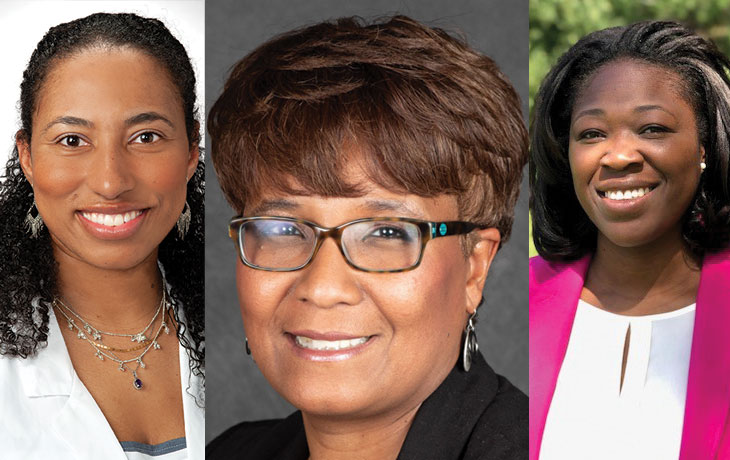For New Pittsburgh Courier
“Everyone—moms, dads, children, all relatives—should talk openly about COVID-19 and how all of us can help curb the disease’s spread.
Answer children’s questions truthfully in words they understand. And it’s OK to admit not knowing an answer and to suggest working together to find one.
For example, children may be confused by social distancing. Explain how it helps protect others from getting sick. So, instead of hugs and kisses to Grandma and Grandpa, youngsters can show their love creatively—perhaps through drawings, handmade greeting cards, digital photos of their crafts or videos of their day.
‘No physical contact’ doesn’t mean ‘no love,’ which is an important message to everyone—young and old—and can make this frightening time far more safe for all of us.”
—Tracey Conti, MD, assistant professor of family medicine, University of Pittsburgh School of Medicine, and program director, Family Medicine, UPMC McKeesport
1. Wash your hands. It’s a very simple step that has a big impact. It is an easy way to ensure that you are minimizing your exposure to the virus.
2. Avoid touching your face. Many of us do this several times an hour without even realizing it. Avoiding touching your face and eyes can reduce your exposure to the virus.
3. Rest and eat a healthy diet. Getting enough sleep and making sure you are eating meals complete with fruits, vegetables and healthy sources of protein can help keep bodies strong.
4. Practice social distancing: Now is a good time to stay home and avoid groups and crowds. Staying six feet away from others can help to reduce exposure.
5. Maintain social connections: During stressful times, connecting with others is important. Using telephones and social media are ways to do so from a distance. Be sure to connect with family and friends to make sure you have a strong network of support.
Resources like the Centers for Disease Control and Prevention (CDC; https://www.cdc.gov/) and the Allegheny County Health Department (https://www.alleghenycounty.us/healthdepartment/index.aspx) are constantly updating their information with the latest recommendations and guidance. Visit these websites to make sure you have the information you need to keep yourself and loved ones safe.”
—Taafoi S. Kamara, MPH, director, Innovation, Education and Outreach, UPMC Senior Services
“COVID-19 has a high infectious rate. Transmission occurs mainly by respiratory secretions from coughing, sneezing and even talking. Therefore, keep at least six feet from people who may be infected. The Centers for Disease Control and Prevention (CDC) recommends that anyone with suspected or confirmed COVID-19 wear a face mask while around other people and animals. People who are older than 70, immunocompromised (e.g., people with HIV, chronic steroid use) and/or have underlying comorbidities (e.g., diabetes, COPD) are at higher risk of death. No specific clinical features can reliably distinguish COVID-19 from other viral respiratory infections. But most confirmed cases have had fevers, fatigue, cough and shortness of breath.
What should you do if you had close contact with a person with COVID-19? What should you do if you have recently been to areas where COVID-19 cases have been widely reported? Symptoms develop within 14 days following exposure. Individuals who have traveled to high-risk areas or are in direct contact with suspected or confirmed COVID-19 patients should be monitored for symptoms (fever, cough or shortness of breath). It is important to reduce spread by recognizing these symptoms early and then performing immediate self-isolation with social distancing. Disinfect all furniture and objects, and call your primary care doctor for evaluation.
According to the World Health Organization, recovery time is around two weeks for mild infections and three to six weeks for severe cases. If a person does not need emergency care, such as not having respiratory distress, the person should call a primary care doctor before visiting any health care facility. Most patients can be evaluated over the phone regarding COVID-19 testing, especially since the test is not easily available and has limited quantities. According to the CDC, routine cleaning and disinfection procedures are appropriate for COVID-19 virus. It is unknown how long COVID-19 can live on surfaces. But it may survive on inanimate surfaces for six to nine days without disinfection.”
—Rickquel Tripp, MD, MPH, clinical assistant professor of emergency medicine, University of Pittsburgh; attending physician, UPMC St. Margaret and UPMC Magee-Womens Hospital, command physician MD-12, UPMC Communication Center, EMS medical director, UPMC Prehospital
